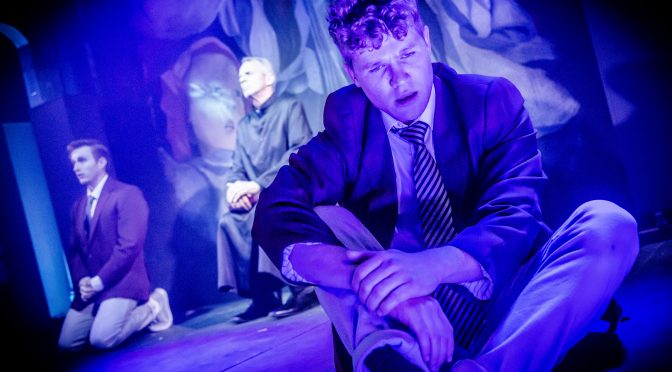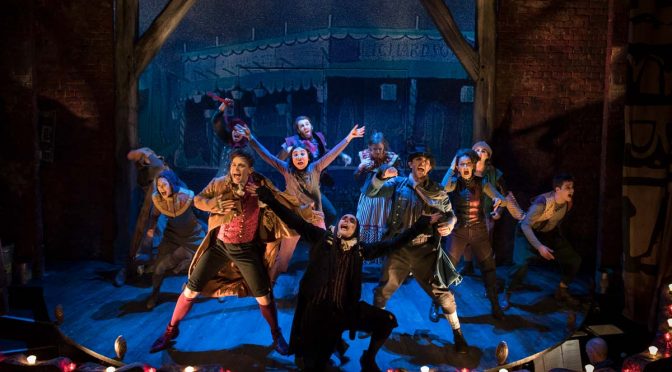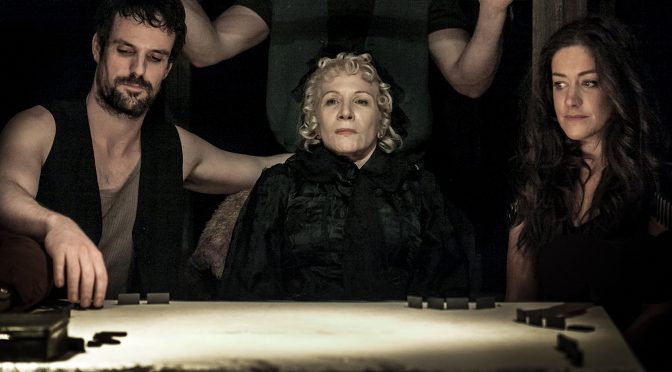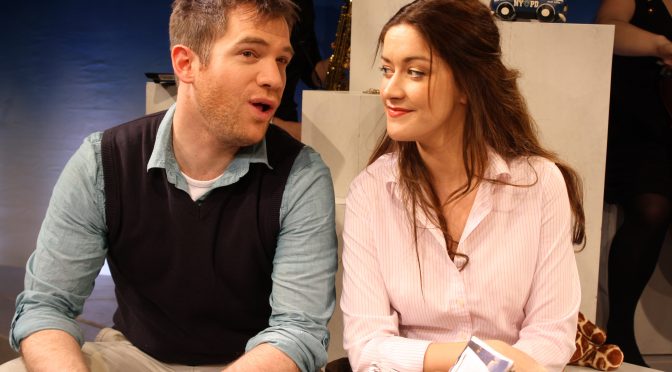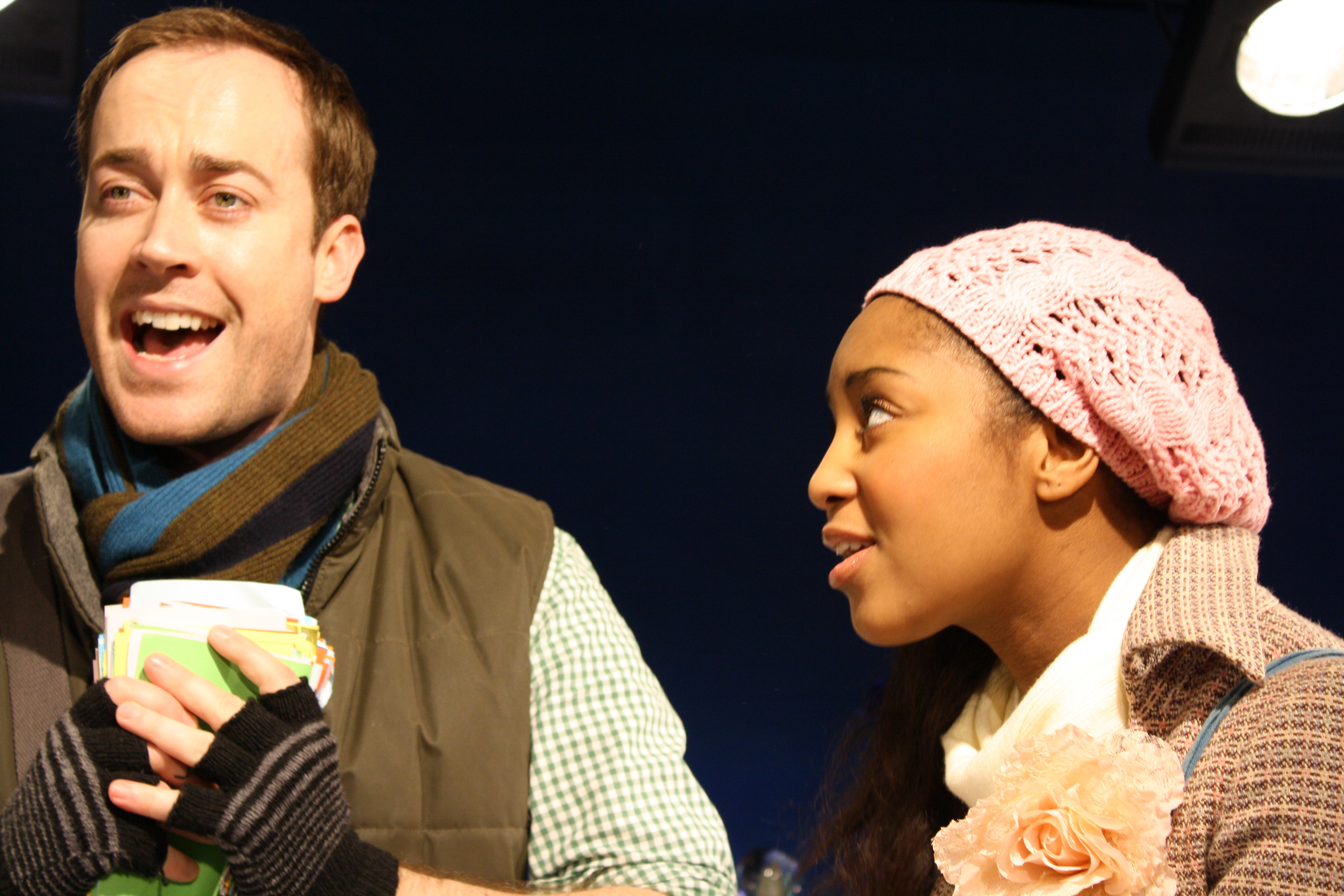It’s tough to knock this well-intentioned musical from Damon Intrabartolo and Jon Hartmere. Dating from the year 2000, it’s a coming-of-age story with real catastrophe at its heart and this new production emphasises the tragedy of youth suicides because of homophobia. As promised by the title, there’s plenty of raw emotion. The target audience is clear – it’s a teen drama with trigger warnings that will surely become a much-loved favourite for many.
Set in a Catholic boarding school, where religion makes a powerful and well-explored theme, the story revolves around a closeted gay couple, students Jason and Peter. Taking the roles, Darragh Cowley and Daniel Mack Shand deliver sincere performances, while director Julie Atherton speeds the action along nicely. But the plot is as predictable as a Christmas Day sermon. Take the end-of-year theatrical production the school puts on – with its very heavy parallels to the main story – well, I don’t need to tell you which Shakespeare play they pick do I?
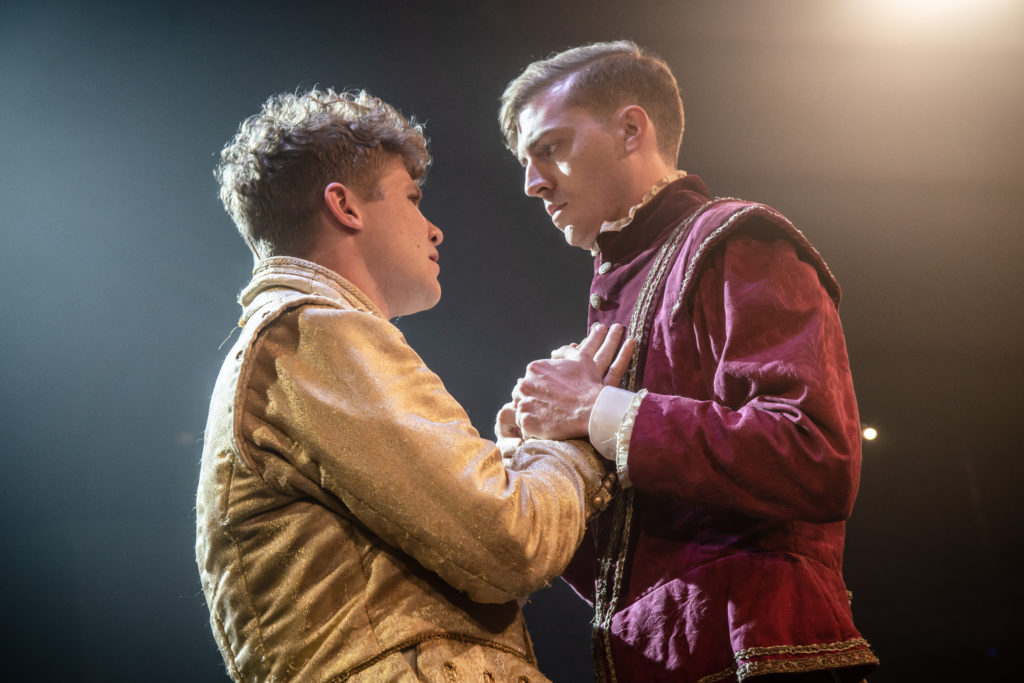
The Romeo and Romeo subtext has powerful moments and a distressing finale, as well as providing the score’s most interesting moments. But the characters we get to know are unfortunately flat and stereotyped: Peter, smart and sensitive, Jason, the school hero and heartthrob who wants to keep their love a secret. Cowley and Mack Shand work marvels with little but it is still too clichéd a combination.
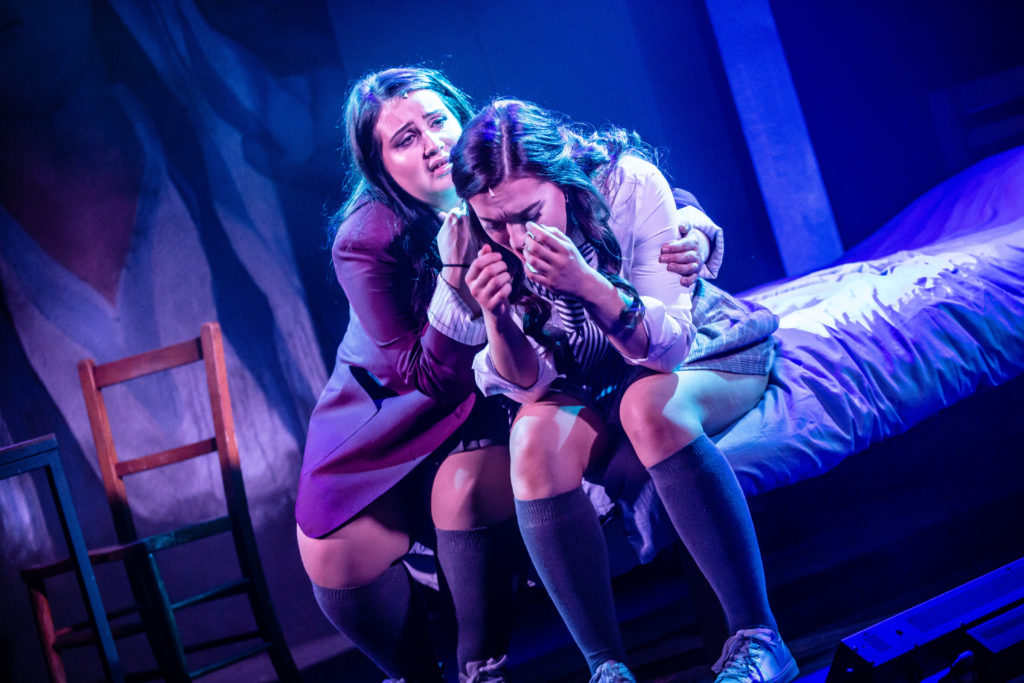
The women in the piece fare even worse. Georgie Lovatt takes her chance to stand out but her introductory number, ‘Plain Jane Fat Ass’, is uncomfortable. Her bête noire Ivy has a better song that Lizzie Emery shines with, but only after she’s been disgracefully used by Jason. Both women are characterised by their bodies – naughty – in a depressingly predictable manner.
Of course, we feel for these characters – but only because of their age and that isn’t quite enough. The only youngster who intrigues is the spurned Matt, who Tom Hier does well with. He may have a more hum-drum dilemma but, with less sentimentality, ends up surprisingly effective.
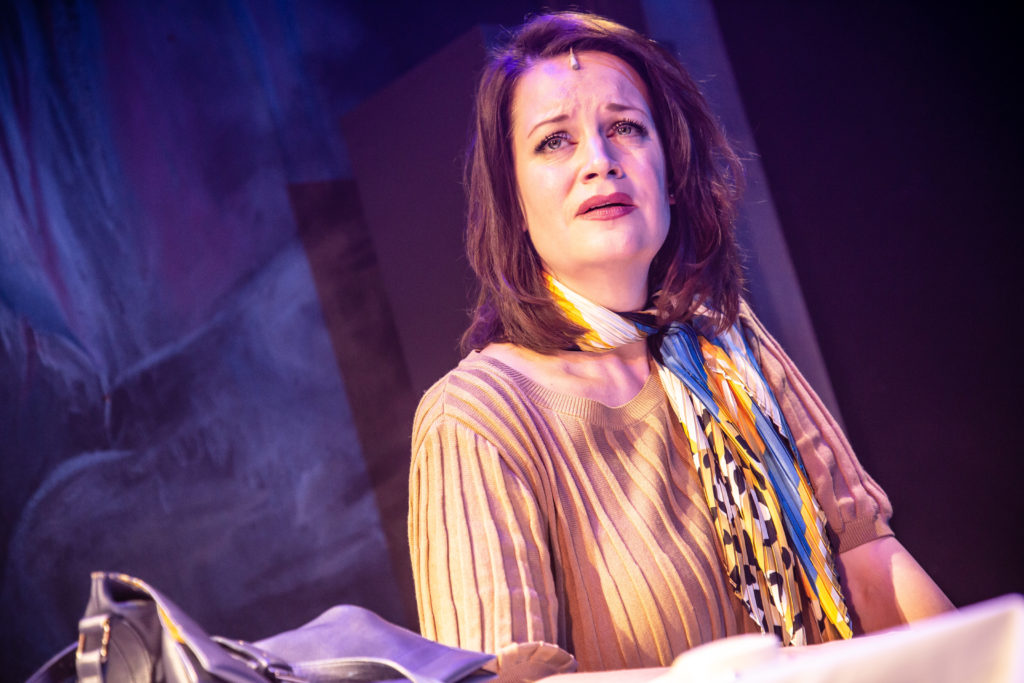
Thankfully, the more mature roles are better. Jo Napthine is woefully underused as Peter’s mother, but her main number is delivered superbly. As for Stacy Francis – she is the real deal. Playing the Virgin Mary in a dream sequence proves a real highlight; the show needs more lifts like this – the only other flight of fancy, the Act Two opener is also good. And, as the school’s drama teacher, Sister Chantelle, Francis can’t help but steal every scene. And prove yet again that good musicals really must include a nun.
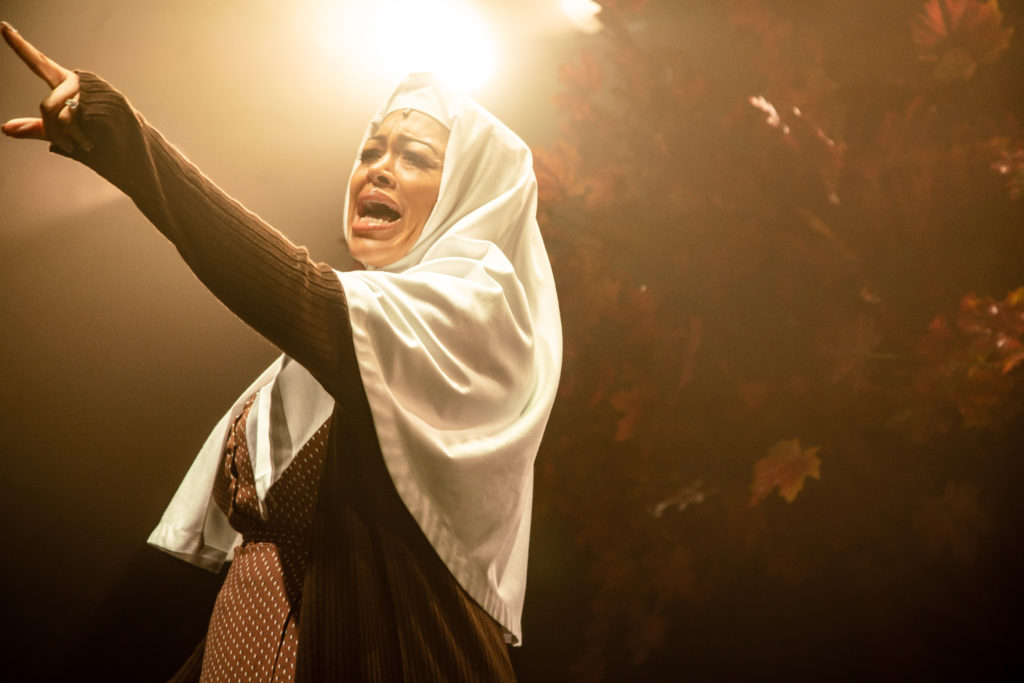
There are quibbles with the production itself, which fans will happily ignore. Atherton has clearly done fine work in the rehearsal room – all the angsty one-on-ones are well executed. But the show comes unstuck in the venue. The auditorium (for Vault Festival regulars, usually the big bar) is poorly laid out. The choreography suffers, too. Stuart Rogers work is impressive but the sight lines here are very awkward and the stage noisy. There’s generally too much racket from moving around props, which proves distracting.
Nonetheless, success for the show would be welcome. The seriousness may be too earnest at times but the aspirations are impressive. If Intrabartolo’s score lacks stand-out numbers, the music works well dramatically and some of the duets are nice. Barman’s lyrics are dense and prove too much a bit too often – but they give voice to all manner of teenage concerns, from the trivial to the tragic. Shows like this are perennial, but Bare’s passion answers an important need with credibility.
Until 4 August 2019
Photos by Tom Grace

